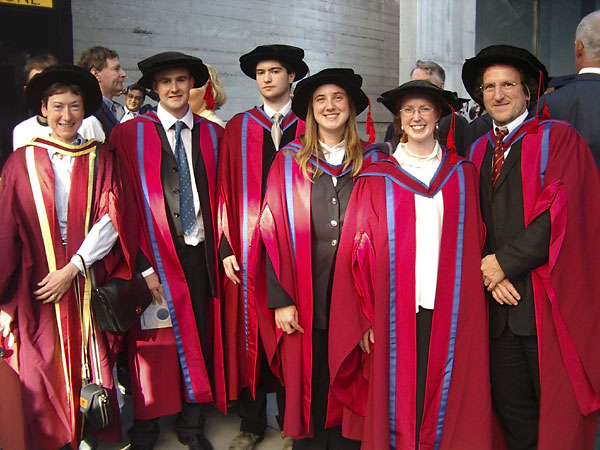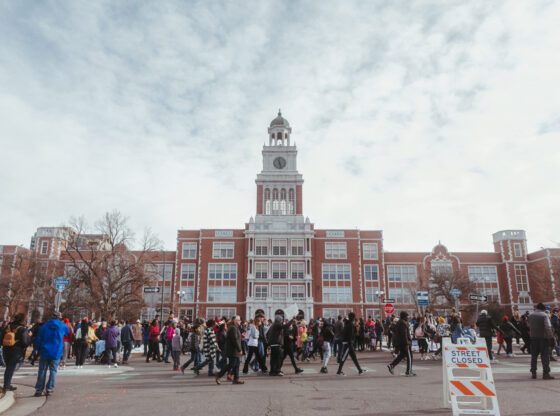It’s fall again at DU and whether you’re a wide-eyed freshman or a jaded senior, it may be time to start planning your life after undergraduate school as application and testing deadlines are coming up in the next few months.
Applying and preparing for school, whether that be medical school, law school or a liberal arts Master’s program, can be incredibly stressful, time consuming and frustrating.
First, there are the tests.
The Tests
Senior Jenny Lamphere from Highlands Ranch is majoring in English and has been preparing to take both the GRE (Graduate Record Examination) and the LSAT (Law School Admission Test) test since June.
“I’m taking the GRE on Oct. 27 and the LSAT on Oct. 2,” said Lamphere who plans to take both tests to prepare for either a Master’s in international studies or a law degree in international human rights law.
The GRE is the test that liberal arts students need to take if they are considering continuing their education after graduation.
As many students may remember from taking the SAT and ACT, these tests are as much about knowing the material as they are about knowing how the test works.
Senior Sam Brock from Safety Harbor, Fla. is majoring in molecular biology with a minor in psychology.
She is currently filling out nine secondary applications for medical school while taking a full course load.
Secondary applications are sent out from medical schools to further questions about their activities and personality after applicants have passed the primary application which looks mostly at grade point average and test scores.
Brock highly suggests taking a preparatory course to maximize test scores on the MCAT, or the Medical College Admissions Test in order to attain an invitation to fill out a secondary application to medical school.
“I would say take the class, the test is…different. You have to get used to taking them, honestly my number one recommendation is take practice tests because you have to get used to taking a four-hour test; build the mental endurance and just know what you’re in for,” said Brock.
Finances
While the GRE and MCAT offer prep courses as an option for students, the financial cost may prove too burdensome for others.
Lamphere bought two prep books from Kaplan, a company that specializes in preparation and testing materials, for $30 each rather than paying up to $2,000 for a preparatory course.
“I haven’t taken any of the classes because I feel like it isn’t a good use of my money. I know how I study specifically and that kind of thing just doesn’t work for me,” said Lamphere.
But after the testing is over, the costs included with getting into graduate, medical or law school don’t stop.
“I’m sitting at just under $1,000 for the applications themselves. That doesn’t include the $2,000 MCAT prep course,” said Brock.
This is all without the actual tuition costs associated with upper level education.
According to FinAid.com, a website dedicated to helping students find ways to finance their education, graduate students borrow a cumulative debt of between $30,000 and $120,000 and the numbers only go up from there for students pursuing a Master’s or professional degree.
Despite the strain, biology professor Robert M. Dores suggests that students who wish to pursue certain academic fields, including life sciences, should continue their education.
“If one hopes to have a career in the life sciences at least a M.S. degree is required. Yes, the job markets are tight, but a student entering a life science Ph.D. graduate program in 2013 will not be on the job market until 2020 or later depending on the amount of postdoctoral training one does after completing a Ph.D.,” said Dores.
Advice
When preparing for graduate school and all the applications and testing that come along with that, it’s good to take advice from those who have gone before you.
Dores suggests staying on top of prerequisite courses and other classes because they can help students prepare for these tests.
Just like applying for college the first time, volunteering, club participation and other extracurricular activities never hurt an application for a job or for higher education.
“For medical school, dental school and physician assistant programs, do volunteer work. Medical schools and dental schools want to see that an applicant is willing to be engaged in his or her community,” said Dores.
Next month, the Career Center is hosting “Graduating: Now What?” for undergraduate seniors to attend workshops and panels, as well as network with employers and alumni.
There will also be free food, which we know no senior can resist.
Regardless of your plans for graduate school, if this article has terrified you, or opened your eyes to the reality of grad school, be sure to set up an appointment at the Career Center today to discuss your impending future.











